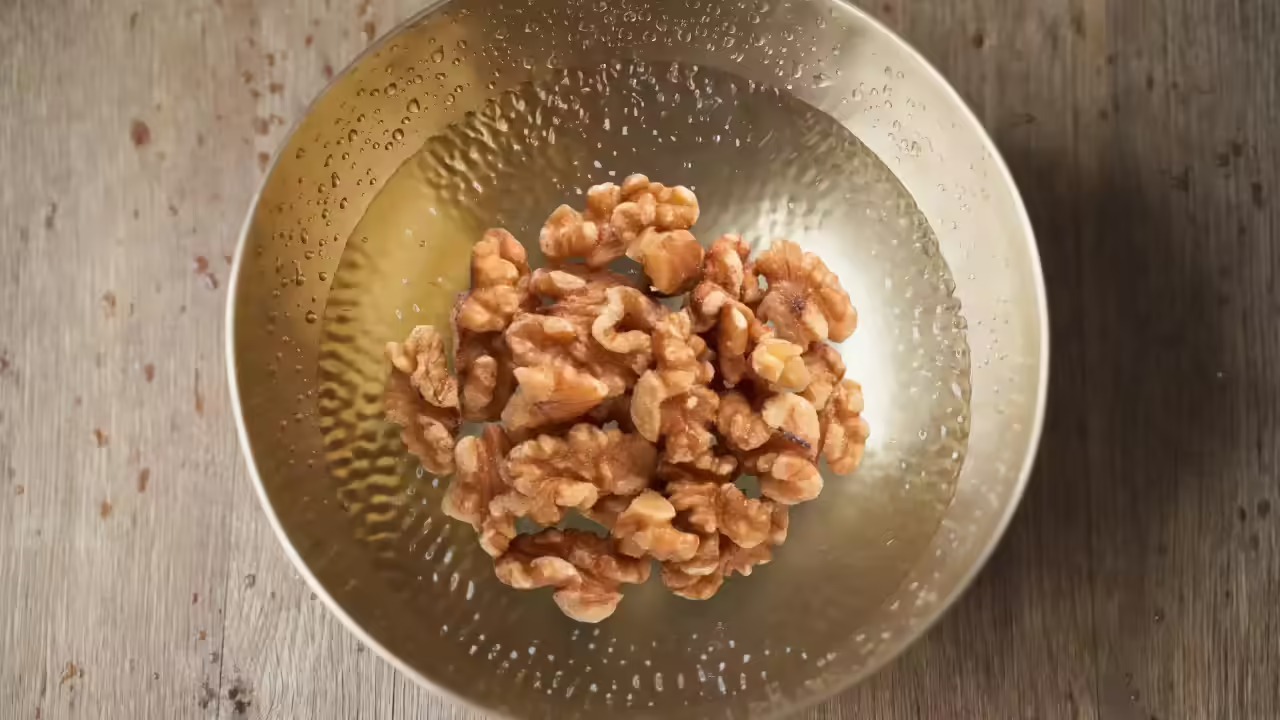- 16
- Aug
- 0

Can Soaked Walnuts Help Lower Bad Cholesterol and Support Heart Health?
Maintaining a healthy heart has become a top priority for many people worldwide. One of the major threats to heart health is high cholesterol—particularly low-density lipoprotein (LDL), commonly known as “bad” cholesterol. When LDL levels rise too high, it can lead to the buildup of plaque in the arteries, increasing the chances of heart attacks and strokes.
Among various natural options being explored for heart care, walnuts—especially when soaked—have drawn a lot of attention. But can eating soaked walnuts really help reduce harmful cholesterol levels? Let’s explore the facts behind this claim.
Why Are Walnuts Considered Beneficial for the Heart?
Walnuts are packed with essential nutrients that support cardiovascular well-being. They are a rich source of plant-based omega-3 fatty acids, protein, fiber, antioxidants, and healthy fats—particularly polyunsaturated fats. These nutrients work together to support blood vessel health and maintain balanced cholesterol levels.
What makes walnuts particularly valuable is their high content of alpha-linolenic acid (ALA), a plant-based form of omega-3. ALA is known to reduce inflammation, protect arteries, and limit oxidative stress, all of which play a role in maintaining better cholesterol levels.
How Soaked Walnuts May Help with Cholesterol
Many people choose to soak walnuts before eating them. Soaking softens the nuts, making them easier to chew and digest. It may also improve the body’s ability to absorb the nutrients more effectively. Soaking helps reduce natural substances like tannins that can interfere with nutrient absorption and sometimes cause bitterness.
While soaking doesn’t increase the nutritional content, it may enhance how well the body uses the nutrients already present—such as omega-3s, antioxidants, and magnesium—all of which are known to benefit heart health.
What Research Says About Walnuts and LDL Cholesterol
Scientific studies have shown a connection between regular walnut intake and improved cholesterol levels. According to research published in the American Journal of Clinical Nutrition, adding walnuts to the diet can lead to a reduction in LDL cholesterol and total cholesterol without causing weight gain. These results are likely due to the nuts’ healthy fat profile and antioxidant content.
How to Eat Soaked Walnuts for Best Results
To enjoy the potential heart benefits, soak 4-5 walnuts in a glass of water overnight. In the morning, drain the water and eat the softened nuts on an empty stomach. You can also add soaked walnuts to smoothies, oats, or yogurt for a nutritious breakfast. They can even be tossed into salads or used as a topping for stir-fried vegetables.
Keep in mind that moderation is important. Around 28 to 30 grams (about a handful) per day is considered a safe and beneficial amount. Eating more than that regularly could lead to unwanted side effects due to high calorie and fat content.
Final Thoughts
Always consult with your doctor or a healthcare professional before making any major changes to your diet, lifestyle, or medical routine. They can offer personalized advice based on your current health condition and medical history.
Note – If you have any health-related concerns, please call us at +91-9058577992 to receive free consultation from our experienced doctors. Thank you.

Leave a Comment
You must be logged in to post a comment.